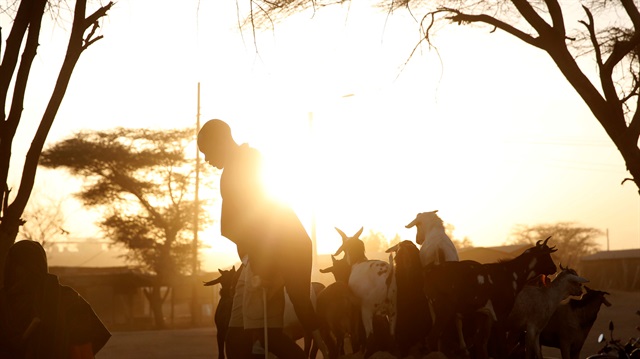
The Turkanas are one of the smaller of Kenya's 44 tribes, inhabiting the county of Turkana in the remote far north bordering South Sudan, Ethiopia and Uganda.
Turkana is also the second-largest county by land mass in Kenya, a vast scrubland long neglected by successive governments based in the capital Nairobi, but counting on future oil production to start making progress.
Turkana is the poorest county among 47 in Kenya; the Kenya National Statistics office says 88 percent of the people in Turkana live below the poverty level, compared with 45 percent nationally.
In Lodwar, the county headquarters, there is electricity and a few kilometres of tarmac roads, but the main routes out of town are in a state of disrepair. Many Turkanas live in tiny huts in villages without running water or electricity.
Illiteracy is high. Only half the school-age children in Turkana are enrolled in primary school, well below the national average of 92 percent, according to the charity Save the Children. The adult literacy rate in the county is 20 percent.
The region is very dry and some parts are very insecure. Small arms find their way through porous borders with unstable neighbouring countries like South Sudan. The main economic activity for the Turkana, who have maintained most of their cultural traditions like distinctive dressing due to the decades isolation, is the rearing of cattle, goats, sheep and camels.
The animals are a sign of wealth and a source of respect in the community. They are traded in the main livestock market in Lodwar, and sometimes used to pay the price of a bride.
There is no production of food in the entire county. All fresh food in Lodwar is trucked in from Kitale, a town in the country’s breadbasket in the Rift Valley.
Oil was discovered in Lokichar, 90 kilometres from Lodwar, in 2012, and most locals hope the start of oil output in 2021 will accelerate development.














